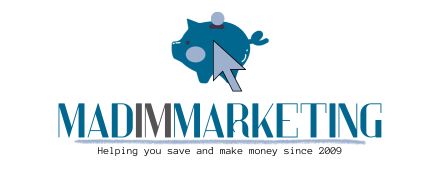 I don’t consider myself an expert in copywriting, but I do know a thing or two when it comes to writing a copy that should convert readers to action takers, and that seems to work for me at least to get people to subscribe to my email lists at a decent rate, so I figure it does work.
I don’t consider myself an expert in copywriting, but I do know a thing or two when it comes to writing a copy that should convert readers to action takers, and that seems to work for me at least to get people to subscribe to my email lists at a decent rate, so I figure it does work.
Below are the most important copywriting tips that I try to always implement.
Tip #1 – 4 Questions
I haven’t read many books about copywriting but from those I’ve read the best is, in my opinion, Mark Joyner’s “The Irresistable Offer”. And what it talks about are essentially 4 questions that your offer has to answer to the prospect:
- What are you trying to sell me?
- How much?
- Why should I trust you?
- What’s in it for me?
And when it comes to the web specifically, I would also add “What do you want me to do next?”.
In his book, Mark Joyner talks about how to answer all 4 question in one statement, but I think if your copy can answer these 4 (or 5) questions at all, you’re good. In fact, you can structure your offer around those questions literally answering them to make it really easy.
Next, let me talk about the typical structure of a sales copy. While a copy doesn’t necessarily have to follow this structure to the point – you can answer the questions plain and simple – this structure is the most widely used for a reason.
Tip #2 – The Headline
The headline is the most important part of a copy (a website, a sales letter, an optin page, etc.). Once a visitor opens your page you have only a few seconds to grab their attention and make them read the rest of the copy (and eventually take whatever action you want them to take). So you better get this one right.
The headline should have your USP (unique selling proposition). What is your USP? It’s what makes you different from your competitors. Usually it’s also the main benefit that you have your visitors to offer. The best USP is the one that offers the solution to the visitor’s most itching problem.
Let’s take an example of a headline “Tips to Increase Your Sales”. It sounds good, it has a benefit and should work for anyone who is looking to increase their sales. But it can be better – it doesn’t really have a real USP, just the benefit.
A better headline could be “7 Free Tips to Increase Your Sales in 10 Minutes”. The USP in that is increasing sales in a short period of time and is even more compelling to someone looking to increase their sales. It also includes a number which is proven to increase conversions even further because it sets expectations (they’ll get 7 tips, not more, not less). And last but not least, it says it’s free!
Tip #3 – The Benefits
I think the most common mistake in copywriting is writing about features instead of the benefits. I know I used to do it all the time. When you have something to offer, you automatically want to talk about the features for some reason. You are proud of the features you have, but it’s a mistake to ephasize them. People want something to solve their problems or satisfy their desires, which are the benefits.
So benefits should always precede the features. You need to list the features but since the attention span of the reader is very limited, you want the benefits to come first to get them interested in your offer.
Tip #4 – Call to Action
While the headline and the body of the copy gets the reader interested and excited, the closing is what makes the sale. Call to action should be obvious and there should be only one action you want your visitor to take with no distractions.
You have probably seen those pages with arrows pointing to a subscription or order form. There’s a reason for that – it puts an emphasis on the call to action so that there’s no way you can miss it.
That doesn’t mean that you should always use arrows pointing to your call to action, but it means that you should pay close attention to how you position it on your pages. Many times you land on a website and it’s one big clutter, you don’t have any idea what they want you to do. Worse are the sites where you have to look for where you can do something, such as download a file, add an item to cart, checkout, etc. Avoid that happening to your sites.
Always make sure you have a strong call to action above the fold so that your visitors know what you want them to do.
Tip #5 – Answer Objections and Give a Guarantee
Trust is extremely important when it comes to getting people do what you want them to do. So you have to find ways to seem trustworthy in their eyes in the short span of time that you have. This is why email marketing works so well – you can create a relationship with your subscribers and build trust over time.
The two common ways to increase trust in your copy is to answer the reader’s objections and to minimize their risk by giving a guarantee.
Think of what a typical visitor might ask in objection to your offer and try to answer those questions in your copy.
When it comes to guarantee, if it makes sense, give trial offers and money back guarantee for your products and services. Use security badges, list your awards if any, post any testimonials from your other customers.
There are more tips but the post is getting lengthy so I’ll wrap it up. I’ll post more tips in the future.

These tips are very good ones. I will implement them asap!
For someone who claims they’re not an expert at copywriting, you certainly have all the concepts down.
I’ve been writing copy for over 20 years and each of your 5 tips is invaluable. But knowing something is not the same as being able to do it. Copywriting needs to be practiced. The more sales letters you write, the better you will get.
A couple of extra tips: 1) learn from the masters of copywriting. If you want to be a great copywriter, you need to read sample ads and sales letters that have pulled in profits over the years. 2) Don’t guess at what your prospects objections are. Find out. Otherwise you risk raising new objections that don’t exist. But if you answer the exact objections your prospect has, it will seem to them like you are reading their mind. They will trust you as someone who truly understands them. 3) Write to your target audience and forget about everyone else. Most newbie copywriters try to appease too many people and lose focus. Your prospect and his/her needs are the ONLY thing that matters.
Great blog. Keep it up.
Thanks – I appreciate it.